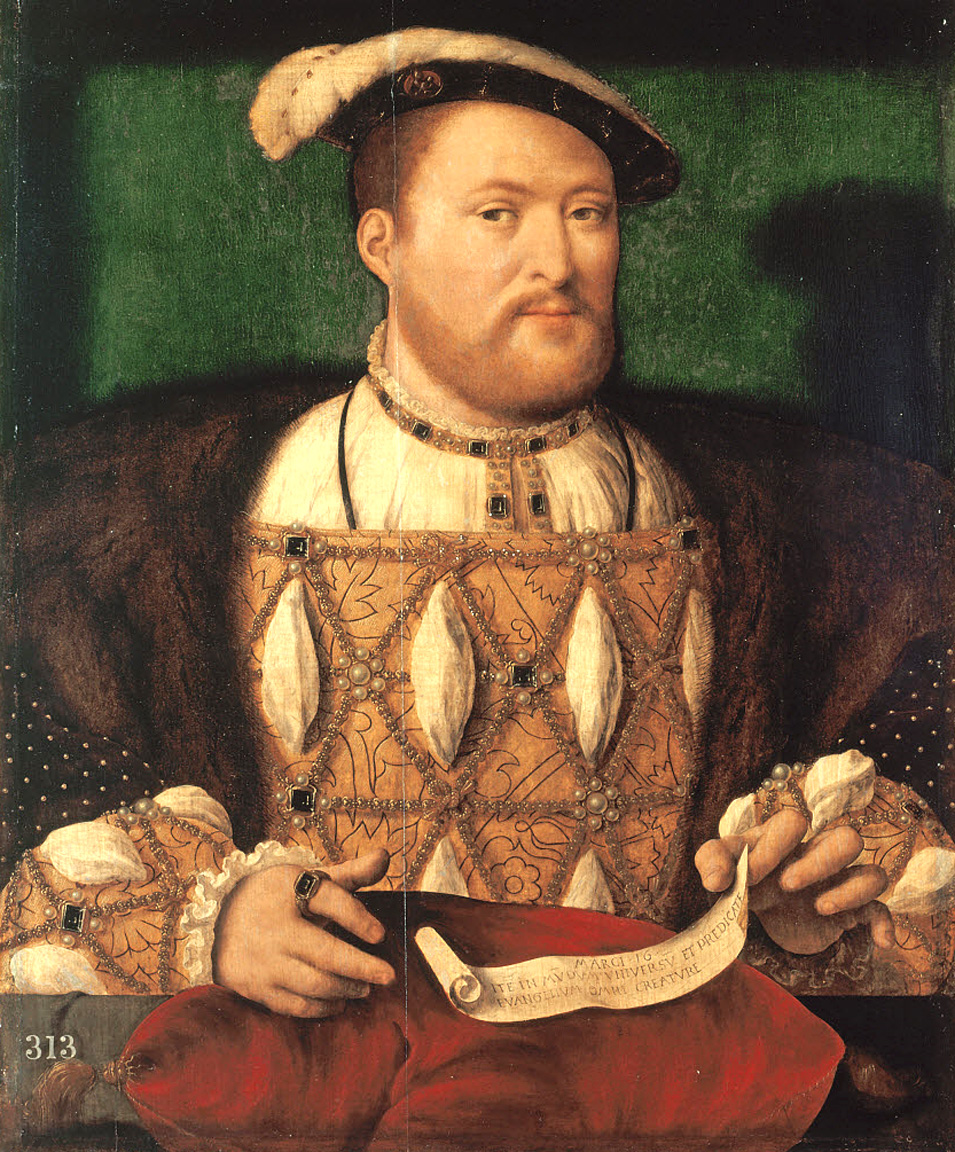Hillary Mantel's Distortions of Tudor History

It would be interesting to be in Britain now, and to challenge the television production of Hillary Mantel’s terrible and beautiful book, Wolf Hall, in discussions with the deeply anti-Catholic Brits who are crowing over the success of this woman’s tomes (Mann Booker prizes TWICE in a row!) What should not be forgotten, however, is that the books, despite the author’s enormous literary gifts, are ennobling a monster and demonizing a saint, and that this will have an effect, for a generation, on the perceptions of the British people of the history of their country during the awful Tudor period. The following essay makes an attempt to set the record straight, but methinks there will be, in our time, no successful challenge to what Hillary Mantel has done to distort history:
“On July 24, 2014, worshippers in Mosul were asked to leave one of the city’s most historic and famous buildings - an ancient Nestorian-Assyrian church that had long ago been converted into the Mosque of the Prophet Younis (biblical Jonah). The Islamic State then rigged the entire building with explosives, and blew it into oblivion. Tragically, it was a Shia mosque - one of many that have suffered the same fate.
The UK's current primetime TV fantasy blockbuster du jour is Wolf Hall. Everyone loves a costume drama, but there is a world of difference between fictional history and historical fiction. One dramatizes real people and events. The other is an entirely made-up story set in the past. The current tendency is to blur the two, which Wolf Hall does spectacularly.
01.jpg)
Thomas Cromwell, whose life it chronicles, comes across as a plucky, self-made Englishman, whose quiet reserve suggests inner strength and personal nobility. Back in the real world, Cromwell was a “ruffian” (in his own words) turned sectarian extremist, whose religious vandalism bears striking comparison with the iconoclasm of Islamic State or the Afghani Taliban.
Thanks to Wolf Hall, more people have now heard of Thomas Cromwell, and this is a good thing. But underneath its fictionalized portrayal of Henry VIII’s chief enforcer, there is a historical man, and he is one whose record for murder, looting, and destruction ought to have us apoplectic with rage, not reaching for the popcorn.

Historians rarely agree on details, so a lot about Cromwell’s inner life is still up for debate. But it is a truly tough job finding anything heroic in the man’s legacy of brutality and naked ambition.
Against a backdrop of Henry VIII’s marital strife, the pathologically ambitious Cromwell single-handedly masterminded the break with Rome in order to hand Henry the Church, with its all-important control of divorce and marriage. There were, to be sure, small pockets of Protestantism in England at the time, but any attempt to cast Cromwell’s despotic actions as sincere theological reform are hopeless. Cromwell himself had minimal truck with religious belief. He loved politics, money, and power, and the reformers could give them to him.

Flushed with the success of engineering Henry’s divorce from Catherine of Aragon and his marriage to Anne Boleyn, Cromwell moved on to confiscating the Church’s money. Before long, he was dissolving monasteries as fast as he could, which meant seizing anything that was not nailed down and keeping it for himself, for Henry, and for their circle of friends. It was the biggest land-grab and asset-strip in English history, and Cromwell sat at the centre of the operation, at the heart of a widely-loathed, absolutist, and tyrannical regime. When Anne Boleyn pointed out that the money should be going to charity or good works, he fitted her up on charges of adultery, and watched as she was beheaded.

As an adviser to Henry, Cromwell could have attempted to guide the hot-headed king, to tame his wilder ambitions, counsel him in patience, uphold the many freedoms enjoyed by his subjects. But Cromwell had no interest in moderation. He made all Henry’s dreams come true, riding roughshod over the law of the land and whoever got in his way. For instance, we are hearing a lot about Magna Carta this year, but Cromwell had no time for tedious trials and judgement by peers. With lazy strokes of his pen, he condemned royalty, nobles, peasants, nuns, and monks to horrific summary executions. We are not talking half a dozen. He dispatched hundreds under his highly politicised “treason” laws. (When his own time came and the tables had turned, he pleaded to Henry: “Most gracyous prynce I crye for mercye mercye mercye.” But he was given all the mercy he had shown others.)

And then there is his impact on this country’s artistic and intellectual heritage. No one can be sure of the exact figure, but it is estimated that the destruction started and legalised by Cromwell amounted to 97% of the English art then in existence. Statues were hacked down. Frescoes were smashed to bits. Mosaics were pulverized. Illuminated manuscripts were shredded. Wooden carvings were burned. Precious metalwork was melted down. Shrines were reduced to rubble. This vandalism went way beyond a religious reform. It was a frenzy, obliterating the artistic patrimony of centuries of indigenous craftsmanship with an intensity of hatred for imagery and depicting the divine that has strong and resonant parallels today.

It can only be a good thing that people are again thinking about Cromwell. Because as we look to the east, to the fanaticism that is sacking the cultural and artistic heritage of other ancient societies, we can all draw the same, inevitable conclusions about religious extremism in any age, whether Christian, Muslim, Jewish, Hindu, or Buddhist. None of it is pretty. All of it is real. And we, in England, are not in some way removed from it. We only have to survey the smashed up medieval buildings the length and breadth of the country, or contemplate Cromwell’s record of public beheadings and other barbarous executions.

It is plain that extremists come in all shapes and sizes.”
http://www.telegraph.co.uk/culture/tvandradio/bbc/11361080/Thomas-Cromwell-was-the-Islamic-State-of-his-day.html
In the 19th century Benjamin Disraeli did a far better job than Mantel to accurately record what the Protestant Reformation in England did to the traditional society and culture of the island-nation:
Book II, Chapter V of Sybil, by Benjamin Disraeli:
‘"You lean against an ancient trunk," said Egremont, carelessly advancing to the stranger, who looked up at him without any expression of surprise, and then replied. "They say 'tis the trunk beneath whose branches the monks encamped when they came to this valley to raise their building. It was their house, till with the wood and stone around them, their labour and their fine art, they piled up their abbey. And then they were driven out of it, and it came to this. Poor men! poor men!"

"They would hardly have forfeited their resting-place had they deserved to retain it," said Egremont.
"They were rich. I thought it was poverty that was a crime," replied the stranger in a tone of simplicity.
"But they had committed other crimes."
"It may be so; we are very frail. But their history has been written by their enemies; they were condemned without a hearing; the people rose oftentimes in their behalf; and their property was divided with those on whose reports it was forfeited."

"At any rate, it was a forfeiture which gave life to the community," said Egremont; "the lands are held by active men and not by drones."
"A drone is one who does not labour," said the stranger; "whether he wear a cowl or a coronet, 'tis the same to me. Somebody I suppose must own the land; though I have heard say that this individual tenure is not a necessity; but however this may be, I am not one who would object to the lord, provided he were a gentle one. All agree the Monastics were easy landlords; their rents were low; they granted leases in those days. Their tenants too might renew their term before their tenure ran out: so they were men of spirit and property. There were yeomen then, sir: the country was not divided into two classes, masters and slaves; there was some resting-place between luxury and misery. Comfort was an English habit then, not merely an English word."

"And do you really think they were easier landlords than our present ones?" said Egremont, inquiringly.
"Human nature would tell us that, even if history did not confess it. The Monastics could possess no private property; they could save no money; they could bequeath nothing. They lived, received, and expended in common. The monastery too was a proprietor that never died and never wasted. The farmer had a deathless landlord then; not a harsh guardian, or a grinding mortgagee, or a dilatory master in chancery, all was certain; the manor had not to dread a change of lords, or the oaks to tremble at the axe of the squandering heir. How proud we are still in England of an old family, though, God knows, 'tis rare to see one now. Yet the people like to say, ‘We held under him, and his father and his grandfather before him’: they know that such a tenure is a benefit. The abbot was ever the same. The monks were in short in every district a point of refuge for all who needed succour, counsel, and protection; a body of individuals having no cares of their own, with wisdom to guide the inexperienced, with wealth to relieve the suffering, and often with power to protect the oppressed."

"You plead their cause with feeling," said Egremont, not unmoved.
"It is my own; they were the sons of the People, like myself."

"I had thought rather these monasteries were the resort of the younger branches of the aristocracy?" said Egremont.

"Instead of the pension list;" replied his companion, smiling, but not with bitterness. "Well, if we must have an aristocracy, I would sooner that its younger branches should be monks and nuns, than colonels without regiments, or housekeepers of royal palaces that exist only in name. Besides see what advantage to a minister if the unendowed aristocracy were thus provided for now. He need not, like a minister in these days, entrust the conduct of public affairs to individuals notoriously incompetent, appoint to the command of expeditions generals who never saw a field, make governors of colonies out of men who never could govern themselves, or find an ambassador in a broken dandy or a blasted favourite. It is true that many of the monks and nuns were persons of noble birth. Why should they not have been? The aristocracy had their share; no more. They, like all other classes, were benefitted by the monasteries: but the list of the mitred abbots when they were suppressed, shows that the great majority of the heads of houses were of the people."

"Well, whatever difference of opinion may exist on these points," said Egremont, "there is one on which there can be no controversy: the monks were great architects."
"Ah! there it is," said the stranger, in a tone of plaintiveness; "if the world but only knew what they had lost! I am sure that not the faintest idea is generally prevalent of the appearance of England before and since the dissolution. Why, sir, in England and Wales alone, there were of these institutions of different sizes; I mean monasteries, and chantries and chapels, and great hospitals; considerably upwards of three thousand; all of them fair buildings, many of them of exquisite beauty. There were on an average in every shire at least twenty structures such as this was; in this great county double that number: establishments that were as vast and as magnificent and as beautiful as your Belvoirs and your Chatsworths, your Wentworths and your Stowes. Try to imagine the effect of thirty or forty Chatsworths in this county the proprietors of which were never absent. You complain enough now of absentees. The monks were never non-resident. They expended their revenue among those whose labour had produced it. These holy men too built and planted as they did everything else for posterity: their churches were cathedrals; their schools colleges; their halls and libraries the muniment rooms of kingdoms; their woods and waters, their farms and gardens, were laid out and disposed on a scale and in a spirit that are now extinct: they made the country beautiful, and the people proud of their country."
"Yet if the monks were such public benefactors, why did not the people rise in their favour?"
_by_Claes_(Nicolaes)_Jansz_Visscher.jpg)
"They did, but too late. They struggled for a century, but they struggled against property and they were beat. As long as the monks existed, the people, when aggrieved, had property on their side. And now 'tis all over," said the stranger; "and travellers come and stare at these ruins, and think themselves very wise to moralize over time. They are the children of violence, not of time. It is war that created these ruins, civil war, of all our civil wars the most inhuman, for it was waged with the unresisting. The monasteries were taken by storm, they were sacked, gutted, battered with warlike instruments, blown up with gunpowder; you may see the marks of the blast against the new tower here. Never was such a plunder. The whole face of the country for a century was that of a land recently invaded by a ruthless enemy; it was worse than the Norman conquest; nor has England ever lost this character of ravage. I don't know whether the union workhouses will remove it. They are building something for the people at last. After an experiment of three centuries, your gaols being full, and your treadmills losing something of their virtue, you have given us a substitute for the monasteries."
"You lament the old faith," said Egremont, in a tone of respect.
"I am not viewing the question as one of faith," said the stranger. "It is not as a matter of religion, but as a matter of right, that I am considering it: as a matter, I should say, of private right and public happiness. You might have changed if you thought fit the religion of the abbots as you changed the religion of the bishops: but you had no right to deprive men of their property, and property moreover which under their administration so mainly contributed to the welfare of the community."

"As for community," said a voice which proceeded neither from Egremont nor the stranger, "with the monasteries expired the only type that we ever had in England of such an intercourse. There is no community in England; there is aggregation, but aggregation under circumstances which make it rather a dissociating, than an uniting, principle."’
http://www.readbookonline.net/read/55200/107135/

The best of all reviews of Mantels' novels:
http://www.lrb.co.uk/v31/n08/colin-burrow/how-to-twist-a-knife
Videos by the British historian Starkey about "the mind of a tyrant":
http://youtu.be/ZY2pKQbecjo
http://youtu.be/rtoBfVMv0e8
http://youtu.be/FDobH-K3wWc
http://youtu.be/7055c6XhoPY